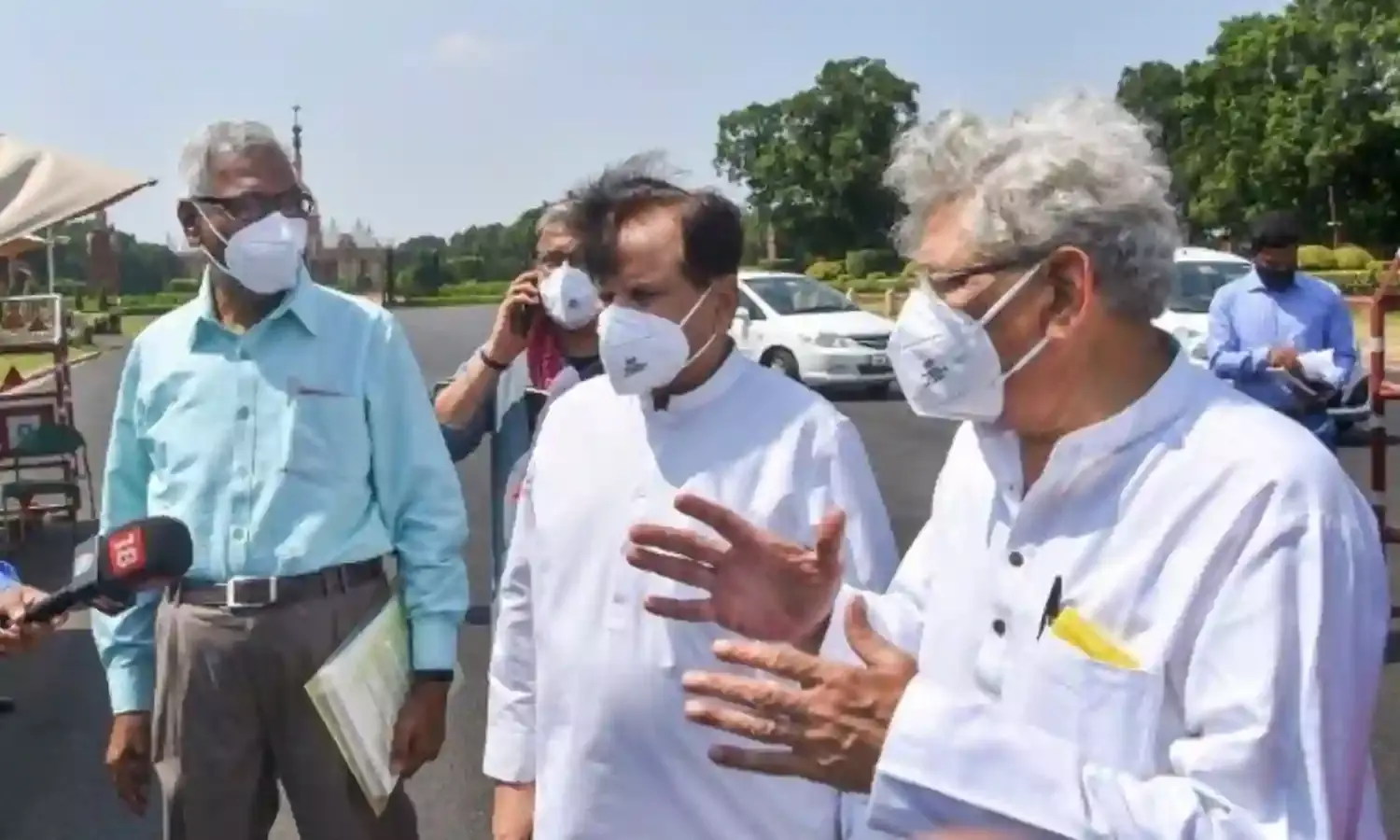Opposition Leaders Ask President to Set up Independent Inquiry into Delhi Riots
Question impartiality of police investigation

A delegation of Opposition leaders met President Ram Nath Kovind and submitted a memorandum for a judicial inquiry into Delhi Police’s ongoing probe into the Northeast Delhi riots that broke out in February, earlier this year. The leaders highlighted the alleged complicity of the Delhi Police in the riots and also raised questions regarding the “impartiality” of the investigation.
The delegation included CPI(M) General Secretary Sitaram Yechury, RJD leader Manoj Jha, Congress Party Treasurer and MP Ahmed Patel, CPI General Secretary D. Raja and DMK leader Kanimozhi.
Raising concerns about Delhi Police’s role in the violence that claimed 53 lives and injured hundreds, the Opposition leaders expressed deep concern over the manner in which the police is “harassing” and attempting to “falsely implicate” activists and young people, painting them as the perpetrators of the violence.
The memorandum claimed that this “manufactured conspiracy theory” has now also begun to “falsely implicate” political leaders such as Yechury, whose name cropped up along with a number of well-known intellectuals, activists and academics in a recent supplementary charge sheet by the Delhi Police that alleges these public personalities had encouraged anti-CAA protestors as part of a plan.
Detailing publicly documented accounts that allege police complicity, the leaders wrote that these videos showed the police directing mobs pelting stones, looking the other way when mobs were indulging in violence and even assaulting young men who lay injured on the road, “repeatedly beating them with lathis” and forcing them to sing the national anthem. Faizan, one of these young men, succumbed to his injuries soon after.
The memorandum also spoke of several accounts of police assaulting and torturing individuals in their custody, highlighting the case of Khalid Saifi, who was picked up from Khureji and had severe visible injuries on both legs when produced before the magistrate.
Referring to the provocative speech made by BJP leader Kapil Mishra one day before violence broke out in Northeast Delhi, the memorandum stated, “A DCP stood mutely next to a BJP leader who was instigating violence against the protestors...” Opposition leaders further added that despite several complaints being filed alleging involvement of senior police officials—including a DCP, additional commissioners and SHOs—“no urgency has been accorded to identifying the policemen involved in violence and ensuring that they are brought to book.”
“The notable silence in the chargesheets on the role of leaders associated with the BJP, who gave inflammatory speeches, raises serious concern about the impartiality of the probe,” stated the memorandum, adding that no action has been taken by the police on complaints filed by individuals against BJP leaders—namely, Kapil Mishra, Anurag Thakur, Parvesh Verma, Satya Pal Singh, Jagdish Pradhan, Nand Kishore Gujjar and Mohan Singh Bisht—accusing them of participating in or orchestrating the violence.
Meanwhile, the Delhi Police have been attempting to criminalise the anti-CAA protests, alleged the memorandum, with the entire investigation seemingly aimed at arriving at a “premeditated theory about a conspiracy propounded by the Home Minister in Lok Sabha in March 2020, before any investigation had even begun into the riots.”
The Opposition leaders also pointed out the manner in which the draconian Unlawful Activities (Prevention) Act (UAPA) has been used against protesting activists and the youth. Over the past six months, supporters and participants of these protests have been summoned by the police, subjected to interrogation for long hours “including threats and coercion to extract false statements and fabricate ‘evidence’ regarding this conspiracy.”
They further alleged that the Police has been leaking disclosure statements about the role of activists and civil society members in the “conspiracy” to “influence public opinion and malign them”. Disclosure statements, noted the leaders, do not have any evidentiary value.
Raising further concerns about the impartiality of the investigation, they highlighted the instance where the Special Commissioner of Police (Crime) had ordered officials to exercise precaution when making arrests, citing “degree of resentment among the Hindu community” regarding arrests of Hindu youth from riot-hit areas in Northeast Delhi.
Calling upon the President to institute an inquiry into the investigation, headed by sitting or retired judge(s) under the Commission of Inquiry Act, 1952, the leaders stated in their memorandum: “A credible and unbiased probe is crucial to restore public trust in the law and order machinery of the state. The investigation cannot be allowed to become fishing and roving expedition aimed at causing a chilling effect on dissent and protest in the country.”



